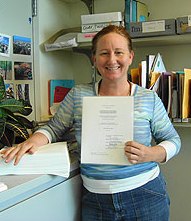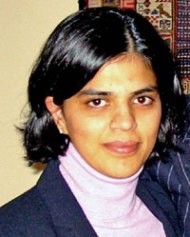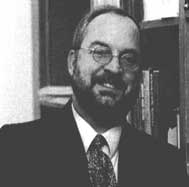|
The Award ceremony is
based on the announcement of the winner for the Sardar Patel Award, as well
as a celebration of Sardar Patels' significance.
Here are excerpts from the previous award ceremonies along with
information of the winners and their dissertations.
You can also find press clippings as well as pictures in the Press
Section.
2022 Sardar Patel Award Winner
Dr. Sarath Pillai, University of Chicago
Federal Futures: Imagining Federation, Constitution, and World in Late Colonial India
2021 Sardar Patel Award Winner
Dr. Ketaki Jaywant, University of Minnesota
Secularizing Caste: Mapping Nineteenth-Century Anti-caste Politics in Western India
2020 Sardar Patel Award Winner
Dr. Ahona Panda, University of Chicago
Philology and the Politics of Language: The Case of Bengali, 1893-1955
2019 Sardar Patel Award Winner
Dr. Sahana Ghosh, Yale University
Borderland orders: Gendered economies of mobility and security across the India-Bangladesh border
2018 Sardar Patel Award Winner
Dr. Rebecca Whittington, UC Berkeley
Tug-of-Ear: The Play of Dialect in Modern Bengali and Tamil Literature
2017 Sardar Patel Award Winner
Dr. Alpen Sheth, Massachusetts Institute of Technology
Cultivating Risk: Weather Insurance, Technology and Financialization in India
2016 Sardar Patel Award Winner
Dr. Aniket Aga, Yale University
Genetically Modified Democracy: The Science and Politics of Transgenic
Agriculture in Contemporary India
2015 Sardar Patel Award Winner
Dr. Isabel Huacuja Alonso, University of Texas at Austin
Radio for the Millions: Hindi-Urdu Broadcasting at the Crossroads of Empire
2014 Sardar Patel Award Winner
Dr. Benjamin Siegel, Harvard University
Independent India of Plenty: Food, Hunger, and Nation-Building in Modern India
2013 Sardar Patel Award Winner
Dr. Uday Chandra, Yale University
Negotiating Leviathan: Statement and Resistance in the Margins of Modern India
2012 Sardar Patel Award Winner
Dr. Tariq Omar Ali
Assistant Professor of History, Univ. of Illinois at Urbana-Champaign
“The Envelope of Global Trade: Political Economy and Intellectual History of
Jute in Eastern Bengal, 1853 to 1950”
2011 Sardar Patel Award Winner
Dr. Nikhil Anand
Assistant Professor of Geography, Univ. of Minnesota, Minneapolis
“Infrapolitics: The Social Life of Water in Mumbai”
2010 Sardar Patel Award Winner
Dr. Tariq Thachil
Cornell University
"The Saffron Wave Meets the Silent Revolution: Why the Poor Vote for
Hindu Nationalism in India"
2009 Sardar Patel Award Winner
Dr. Gayatri A. Menon
Cornell University
"Living Conditions: Citizens, 'Squatters,' and the Politics of
Accommodation in Mumbai"
2008 Sardar Patel Award Winner
Dr. Jahnavi Phalkey
Georgia Institute of Technology
"Science, State-Formation and Development: The Organization of Nuclear
Research In India"
2007 Sardar Patel Award Winner
Dr. Bhavani Raman
University of Michigan
"Raj: Scribes and Writing Under Early Colonial Rule in Madras, 1771-1860"
2006
Sardar Patel Award Winner
2005
Sardar Patel Award Winner
2002
Sardar Patel Award Winner
2001
Sardar Patel Award Winner
2000
Sardar Patel Award Winner

|
2006
Sardar Patel Award

Gillian
M. Goslinga
Gillian M.
Goslinga is a cultural and visual anthropologist,
feminist, and graduate of the History of Consciousness Program at the
University of California, Santa Cruz. Her research on gender,
reproductive technologies, and so called "traditional"
god-assisted reproduction or virgin birth beliefs in contemporary Tamil
Nadu, South India, explores the intersections of religion, science, and
modernity in the lives of women, as well as the question of subalterity in the representation of religious
experience. Gillian Goslinga has also published
in Feminist Studies on gestational surrogacy in the U.S., and
directed/produced an ethnographic film on the subject, The Child The
Stork Brought Home (1997). She is currently in post-production on her
next ethnographic film, The Pujari's Daughter,
an intimate chronicle of the life and work of the big priestess (periya pujari) of the Hindu
temple that is the principal site of her research in South India. Gillian
M. Goslinga teaches at San Francisco State
University.
2006 Award Ceremony:
Abstract of Dissertation
Ceremony Program
Keynote Speakers
Letter from the Chairman of FSPAA
Letter from the UCLA History Chair

2005
Sardar Patel Award

Dr.
Michael Youngblood
Michael Youngblood, who
received the award on June 11, 2006, earned his PhD in cultural
anthropology at the University of Wisconsin–Madison in 2004 under the
guidance of his advisor, Professor Kirin Narayan.
He completed his MA in anthropology at that same department and his BA in
anthropology at Lawrence University in Appleton, Wisconsin. During his
first visit to India, in 1986, he also earned a Certificate in Marathi
Language and Culture from the Western Regional Language Center of Deccan
College, Pune. Over the years, Youngblood’s
scholarship has received recognition from a number of sources, including
a Fulbright-Hays Doctoral Fellowship, the American Institute of Indian
Studies Dissertation Fellowship, the Thomas J. Watson Fellowship, the
Percy H. Buchannan Prize for Writing on Asian Affairs, and the Christine Gerdes Award in anthropology at Lawrence University.
In 2005, his PhD dissertation was recognized with the Robert Miller Prize
for Innovation in Anthropological Research at the University of
Wisconsin. While most of his research experience has been in India, he
has also conducted field studies in North Africa, the Arctic, and in many
locations across the US.
Formerly adjunct professor and Academic Director for India programs with
the School for International Training (Brattleboro, Vt.), Youngblood
currently lives in New York City, where he is an independent scholar and
consultant. In his consulting work, he studies human interaction with
environments, interfaces, products, services, and messages in order to
solve usability breakdowns that result from inappropriate design. His
clients include private sector businesses, public sector social services,
and progressive non-profit organizations.
2005 Award Ceremony:
Abstract of Dissertation
Ceremony Program
Keynote Speakers
Letter from the Chairman of FSPAA
Letter from the UCLA History Chair

2002
Sardar Patel Award
 
Dr.
Farina Mir
Dr.
Rachel Sturman
Farina Mir
was born in Nairobi, Kenya to the parents of South Asian descent. Shortly
after her birth, her family moved to England where she received her early
schooling. Farina moved to the United States in 1980, completing all of
her education in New York. She received her B.A. from Barnard College in
1993, majoring in both English Literature and South Asian studies. While
she chose to go on for a Ph.D. in history (She received her Ph.D. from
Columbia university's Department of History), she pursued a topic that brought
her interests in literature, history, and South Asia together. Her
dissertation, entitled "The Social Space of Language: Punjabi
Popular Narrative in Colonial India, c. 1850-1900", focuses on
language as a crucial site of cultural engagement in a religiously plural
society, and underlines how regional oral and literary cultures provide
critical insights into the nature of social relations in
nineteenth-century North India. Farina is currently working on a book
manuscript based on her dissertation.
Farina was a Mellon Postdoctoral Fellow at the
Society for the Humanities at Cornell University during the 2001-2002
academic year. She is currently an Assistant
Professor in the Department of History at the University of Virginia,
where she teaches courses on Modern South Asia.

Rachel grew up in upstate New York and received her
B.A. from the University of Chicago in 1991. It was at Chicago that she
began to study modern South Asia and the history of colonialism, inspired
by the emergent scholarship in the field at that time. She also began to
learn Hindi and after graduation, spent a year in Benaras
continuing her language training while applying to graduate school. She
completed her M.A. at the University of California Davis in 1993, and her
PhD. at the same institution in 2001.
Her dissertation, "Family Values:
Refashioning Property and Family in Colonial Bombay Presidency,
1818-1937" examined the linkages between colonial transformations in
property and colonial histories of the family. The project explored the
multiple British and Indian ways of imagining the relationships that
defined family in the region, and it traced the changing ways in which
property was seen to structure those relationships and to express broader
forms of social authority and legal subjecthood.
She argues that the contradictions in modern personal law and debates
about women's property rights emerged from this particular colonial history.
Rachel's graduate training was funded by a Mellon Fellowship in the
Humanities, and her eighteen months of dissertation research in Bombay
and Pune were conducted through an American
Institute of Indian Studies Dissertation Research Fellowship, The dissertation
writing itself was supported by grants from the University of California
President's Dissertation Fellowship, by the Mabelle
McLeod Lewis Dissertation Fellowship, and by the Phi Beta Kappa
Dissertation Award.
Rachel is currently a Fellow at the Michigan
Society of Fellows and an Assistant Professor in the Department of
History at the University of Michigan, where she is revising her
dissertation for publication and teaching courses on the history of
colonial and post-colonial India on Gandhi, on comparative imperialism
& colonialism, and on South Asian migration & transnational
communities. Her larger scholarly interests include histories of the
family, personal narrative, colonial law, and theories of translation and
exchange. She has spent more than three years studying and researching in
the subcontinent; she is proficient in Hindi, and is currently learning
Marathi for her next project, a study of family histories and personal
narrative in western India from the eighteenth to the twentieth centuries.
2002 Award Ceremony:
Abstract of Dr. Mir's Dissertation
Abstract of Dr. Sturman's
Dissertation
Ceremony Program
Keynote Speakers
Letter from the Chairman of FSPAA
Letter from the UCLA History Chair

2001 Sardar
Patel Award

Dr.
David Stuligross
Born in 1963, David Stuligross is the fourth of five sons born to John
and Katherine Stuligross. After growing up in
Wisconsin, his worldview was challenged in 1982, when he lived for a year
in Bharuch, Gujarat as a Rotary Exchange Student. In addition to
attending high school, he worked for an extended period in a watch
factory and attended thrice-weekly voice and tabla
classes. He traveled widely throughout India, including a trip to
Bangalore ostensibly to escape an outbreak of jaundice in Bharuch. The
disease, he learned much later, was one of jaundiced political
perceptions that led to one of India’s worst bouts of Hindu-Muslim-Tribal
violence.
While at Oberlin College (BA/BMus 1987) and
Stanford University (MA 1990), Stuligross
continued to share his enthusiasm for India by performing on tabla and a monthlong World
Music Festival. He lived in China and Washington DC for a year each
before beginning a PhD program at the University of California, Berkeley.
Supported by a Henry Braden Fellowship, he studied Hindi for three
summers in Uttar Pradesh. Between 1995-1997, supported
by a MacArthur&Mellon research fellowship,
he engaged in field work in Delhi, Uttaranchal, Uttar Pradesh, Jharkhand,
Bihar, Meghalaya, and Assam.
During 2000-2001, Mr. Stuligross was a visiting
Assistant Professor of Political Science at the University of Michigan.
Currently, he is a visiting Assistant Professor of Peace Studies at
Colgate University.
2001 Award Ceremony:
Abstract of Dissertation
Ceremony Program
Keynote Speakers
Letter from the Chairman of FSPAA
Letter from the UCLA History Chair

2000
Sardar Patel Award

Dr.
Srirupa Roy
Srirupa
Roy grew up in Calcutta, India and received her undergraduate degree from
Dartmouth College and her Ph.D. from the department of Political Science
at the University of Pennsylvania in 1999. Her dissertation, “Divided We
Stand: Diversity and National Identity in India” examines official
nationalism in post- colonial India, and the state’s attempts to produce
and disseminate national identity from 1947 until the present. She has
received grants and awards from several organizations, including the
SSRC-MacArthur Foundation’s Program on Inter national
Peace and Security.
Srirupa is currently an associate professor in
the department of Political Science at the University of Massachusetts
Amherst, and senior advisor for international collaboration at the Social
Science Research Council (SSRC). Her research and teaching interests
focus on the comparative politics of nationalism and state-formation;
secularism and religious politics in the Middle East and South Asia; and
visual culture/visual politics. She is the author of Beyond Belief: India
and the politics of postcolonial nationalism (Duke University Press,
2007); co-editor (with Amrita Basu) of Violence
and Democracy in India (Palgrave/Seagull Books, 2006); co-editor (with Alev Cinar and Maha Yahya) of Secular Publicities:
Visual Practices of Secularism and Nationalism in the Middle East and
South Asia (University of Michigan Press, forthcoming 2008), and numerous
other book chapters and journal articles. Her current book project is on
television news media and democracy in India, based on ethnographic
fieldwork in India conducted as a senior fellow of the American Institute
of Indian Studies (2006-07).
2000 Award Ceremony:
Abstract of Dissertation
Ceremony Program
Keynote Speakers
Letter from the Chairman of FSPAA
Letter from the UCLA History Chair
|
|
|




